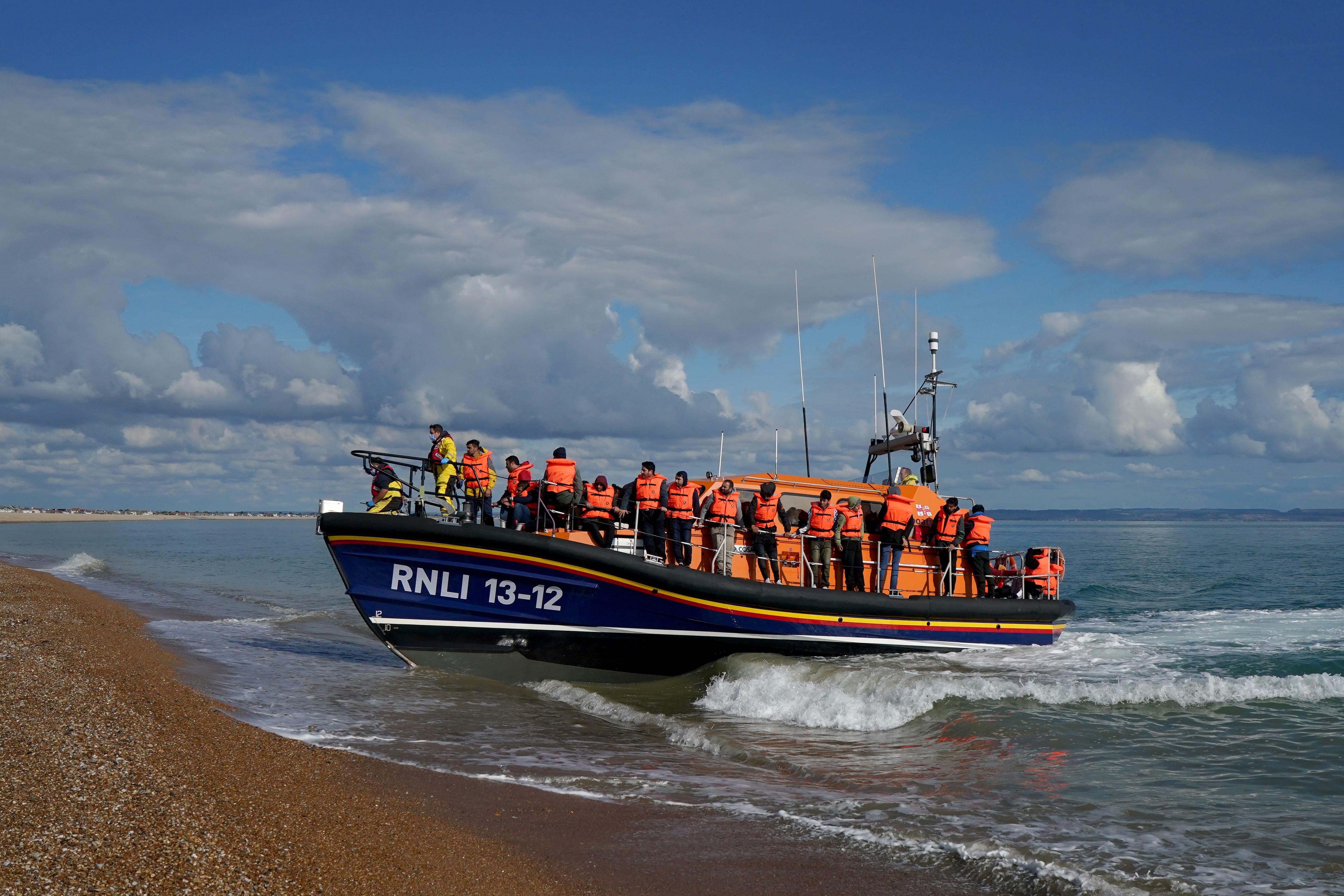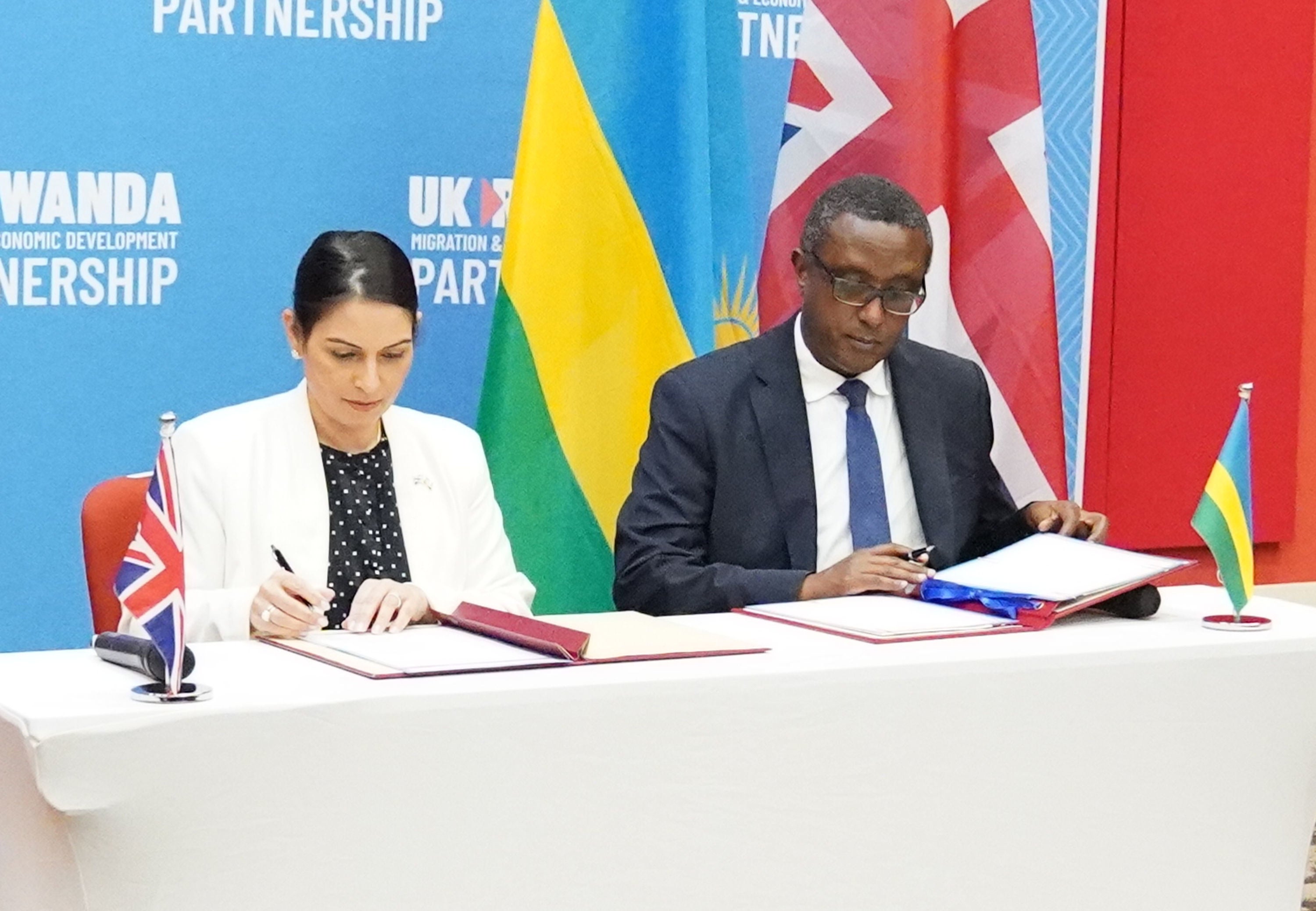Small boat crossings surge 60 per cent to new record in 2022 and ‘could get worse’ this year
‘All the Conservatives have done this year is ramp up the rhetoric while making the problem worse,’ Yvette Cooper says

Your support helps us to tell the story
From reproductive rights to climate change to Big Tech, The Independent is on the ground when the story is developing. Whether it's investigating the financials of Elon Musk's pro-Trump PAC or producing our latest documentary, 'The A Word', which shines a light on the American women fighting for reproductive rights, we know how important it is to parse out the facts from the messaging.
At such a critical moment in US history, we need reporters on the ground. Your donation allows us to keep sending journalists to speak to both sides of the story.
The Independent is trusted by Americans across the entire political spectrum. And unlike many other quality news outlets, we choose not to lock Americans out of our reporting and analysis with paywalls. We believe quality journalism should be available to everyone, paid for by those who can afford it.
Your support makes all the difference.Small-boat crossings hit a new record in 2022 and “more lives will be put at risk” if the government does not take effective action, it has been warned.
Almost 46,000 people made the journey across the English Channel in the year, a 60 per cent increase on 2021 – which itself set a record high.
Home Office figures show that 90 per cent of small-boat migrants claim asylum after being intercepted by authorities, but ministers have so far failed to set up more alternative routes.
High winds and rough seas mean there have been no arrivals since Christmas Day, but officials expect more dinghies to launch from northern France when the weather calms.
Yvette Cooper, the shadow home secretary, told The Independent: “All the Conservatives have done this year is ramp up the rhetoric while making the problem worse.
“They’ve failed to tackle criminal gangs that are profiting from crossings, written a £140m cheque to Rwanda for an unworkable, unethical scheme, and there’s still no safe way for many lone child refugees to rejoin relatives in the UK. This isn’t working, and it means more and more lives are put at risk.”
Ms Cooper said a deal needs to be struck with France to allow asylum seekers in the country to reunite with relatives in the UK, and to enable returns, adding: “Too many lives are being put at risk in these dangerous boats while criminals profit. We need action before things get worse.”
The government has announced several policies it claimed would “deter” those making Channel crossings, including the Rwanda deal, Ministry of Defence patrols, new laws to criminalise migrants, and social media campaigns.

But the number of arrivals has continued to rise, despite French authorities preventing more than 32,500 crossings.
The boats used have been getting larger and more overloaded, seeing the average number of passengers increase from eight in 2018 to 47 this autumn, which in turn has made the journeys more dangerous.
At least four people drowned when their dinghy started sinking as they attempted the treacherous journey on 14 December, and four other passengers remain missing.
Official figures show that 299 people were detected arriving on small boats in 2018, when the then home secretary Sajid Javid declared a “major incident”. The figure rose to 1,843 in 2019, 8,466 in 2020, and 28,526 in 2021.
The provisional total for 2022, calculated by the Press Association using Home Office and Ministry of Defence figures, is 45,756.
While this represents a new record, the total is far below an internal Home Office estimate of 65,000, which was made early in 2022.
Claire Moseley, founder of the charity Care4Calais, said the figures “show that the government’s anti-migrant rhetoric is no substitute for workable solutions”.
“With no safe routes for the refugees we work with in Calais to claim asylum in the UK, brutal policies such as Rwanda will not work as a deterrent,” she added. “We know it’s possible to give people safe passage – we do it for Ukrainian refugees – so why not do it for other refugees? This is the only way that small-boat crossings will stop and lives will be saved.”
The past year has seen a rise in Afghans and Albanians arriving in dinghies, while Iranian, Syrian and Iraqi nationals also make up significant numbers.
Announcing a new package of punitive laws in December, the prime minister said the government would only create more safe and legal routes after it “gets a grip of illegal migration”.
Under British law, people must be physically present in the country to claim asylum, but there is no visa available for those wishing to reach the UK for that purpose.

While bespoke schemes have been set up for migrants from Afghanistan, Hong Kong and Ukraine, wider resettlement schemes only saw 1,391 refugees brought to the UK in the year to September, compared with almost 86,000 people who claimed asylum after travelling independently in the same period.
The vast majority of applications are stuck in a record Home Office backlog, which has been worsened by a policy of declaring people who have travelled through safe countries “inadmissible” for consideration while having few countries to send them to.
The Rwanda scheme has been declared lawful overall by the High Court, but charities may yet appeal against the ruling, and judges overturned every decision they considered in relation to eight individual asylum seekers.
Earlier this year, a senior National Crime Agency official told journalists that while the agency was attempting to arrest smugglers in France and attack their supply chains, Channel crossings were being driven by “a degree of supply and demand”.
He said migrants on the French coast are “determined to cross the Channel” after making long journeys at great financial cost.

Home secretary Suella Braverman claimed that new laws aiming to allow the government to refuse asylum to people arriving on dinghies would act as a deterrent, but an internal Home Office research document from September 2020 advised ministers that many asylum seekers “have little to no understanding” of UK law.
The report warned that refugees “can be displaced into irregular migration routes by limited or absent legal and safe migration routes”.
The Royal Navy will hand responsibility for small-boat crossings in the English Channel back to the Home Office later in January, after eight months of “primacy”.
A new Small Boats Operational Command, led by the Border Force but supported by the National Crime Agency, Royal Navy and other bodies, will be taking charge of efforts to disrupt crossings and process arrivals.
A government spokesperson said: “The global migration crisis is causing an unprecedented strain on our asylum system. Nobody should put their lives at risk by taking dangerous and illegal journeys. We will go further to tackle the gangs driving this, using every tool at our disposal to deter illegal migration and disrupt the business model of people smugglers.’’



Join our commenting forum
Join thought-provoking conversations, follow other Independent readers and see their replies
Comments